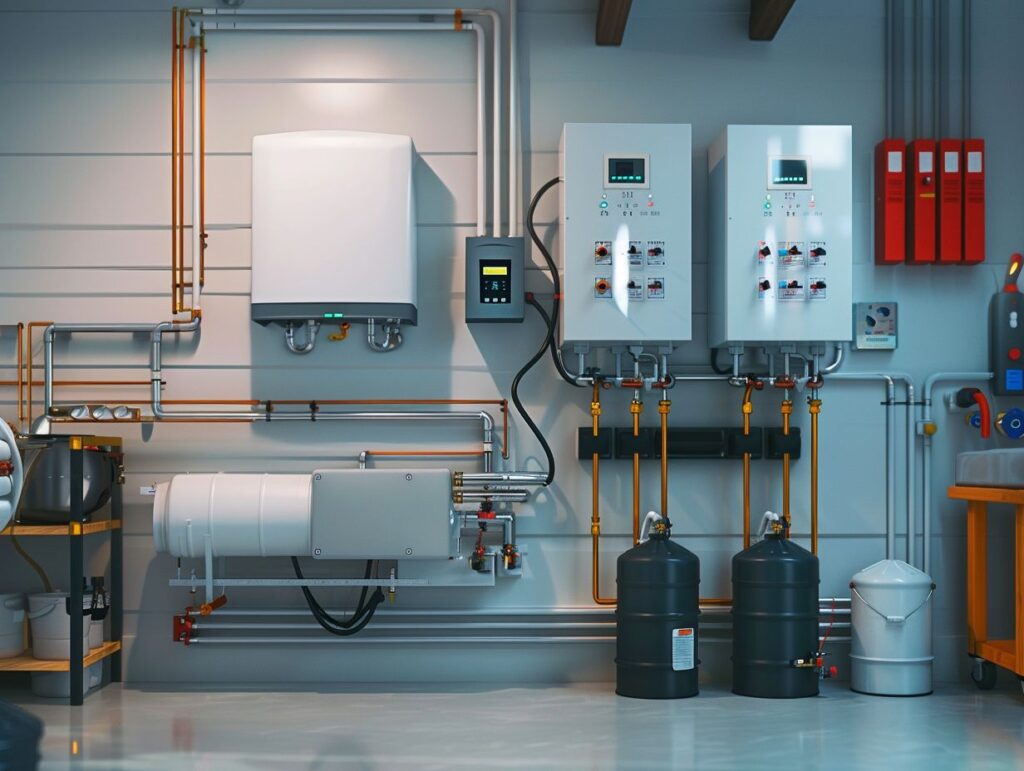Are you considering upgrading your heating system but unsure about the best choice to make?
Dual fuel heating systems offer a unique solution that combines the benefits of two different fuel sources to provide efficient and cost-effective heating.
This article will explore the advantages of dual fuel heating systems, how they work, installation and maintenance tips, as well as a comparison with other heating options.
Find out how dual fuel heating systems can improve comfort levels in your home while also offering long-term cost savings.
Key Takeaways:
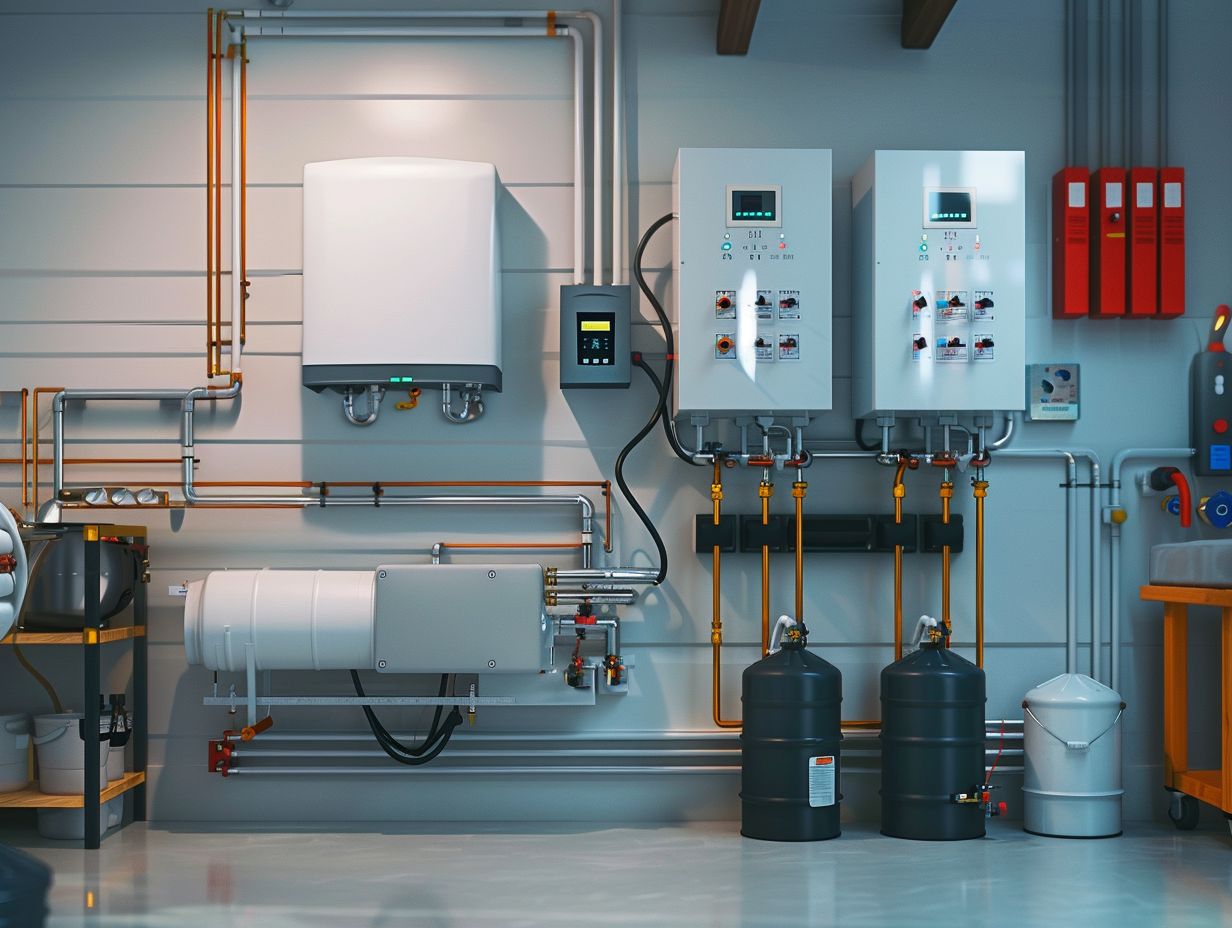
- Dual fuel heating systems offer greater efficiency and cost savings by combining the use of two different energy sources.
- By using renewable energy sources, such as solar power, in conjunction with traditional fuel sources, dual fuel heating systems have a lower environmental impact.
- Professional installation and regular maintenance are crucial for the proper functioning and longevity of dual fuel heating systems. Comparing different heating options can help determine the best fit for individual needs.
Advantages of Dual Fuel Heating Systems
Dual-fuel heating systems provide a combination of efficiency, comfort, and environmental sustainability by leveraging the advantages of a heat pump alongside a gas or propane furnace.
Efficiency and Cost Savings
One of the primary benefits of dual-fuel heating systems is their efficiency, which translates to significant cost savings on energy bills due to optimised heating power and potential savings on natural gas prices.
Plus cost savings, dual-fuel systems also offer you the advantage of reducing energy consumption through their ability to automatically switch between gas and electric power sources based on cost-effective factors such as utility rates and energy prices.
This dynamic capability allows the system to operate on the most economical fuel source at any given time, ensuring that you can enjoy consistent comfort without overpaying for energy. As a result, utility bill reductions are a common outcome for those who choose to invest in dual-fuel systems, providing long-term financial benefits and improved energy efficiency.
Environmental Impact
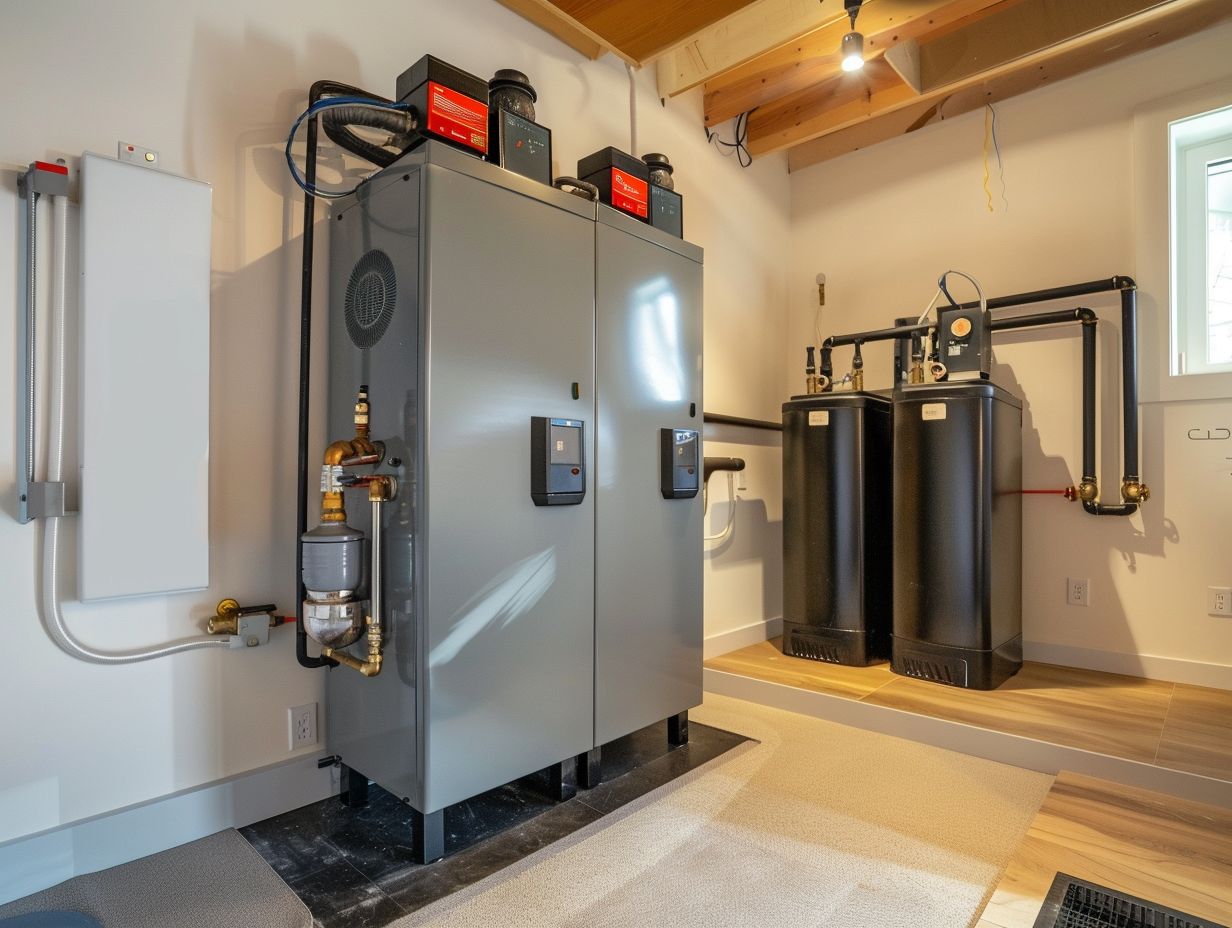
Utilising dual-fuel heating systems can play a key role in promoting a more sustainable future by diminishing the carbon footprint associated with conventional heating methods and encouraging the adoption of energy-efficient practices.
Through the integration of diverse energy sources, dual-fuel systems have the capability to significantly reduce greenhouse gas emissions and diminish the dependency on fossil fuels. This transition towards cleaner energy not only aids in combating climate change but also bolsters long-term sustainability endeavours.
The adaptability of dual-fuel systems enables a more effective utilisation of resources, optimising energy consumption and ultimately resulting in a decreased environmental impact. These systems are pivotal in propelling progress towards a greener and more sustainable future.
How Dual Fuel Heating Systems Work?
Understanding how dual-fuel heating systems operate requires examining the interaction between the electric heat pump and the gas or propane furnace components to deliver efficient heating and cooling solutions.
Components and Functioning
The components of a dual-fuel system work together to provide both heating and cooling functions, integrating HVAC systems to ensure optimal performance year-round. One crucial feature of dual-fuel heating systems is their capacity to seamlessly transition between utilising gas and electricity based on the most cost-effective fuel source at any given time.
This adaptability not only aids in lowering energy expenses but also guarantees a consistent and pleasant indoor climate.
Dual-fuel systems are often furnished with advanced thermostats capable of automatically adjusting settings to efficiently maintain desired temperatures. By effectively balancing heating and cooling operations, dual-fuel systems present homeowners with a dependable and energy-efficient HVAC solution for maintaining comfort throughout the year.
Installation and Maintenance of Dual Fuel Heating Systems
Proper installation and maintenance are essential for maximising the efficiency and longevity of dual-fuel heating systems. This process necessitates professional expertise and strict adherence to maintenance tips.
Professional Installation and Maintenance Tips
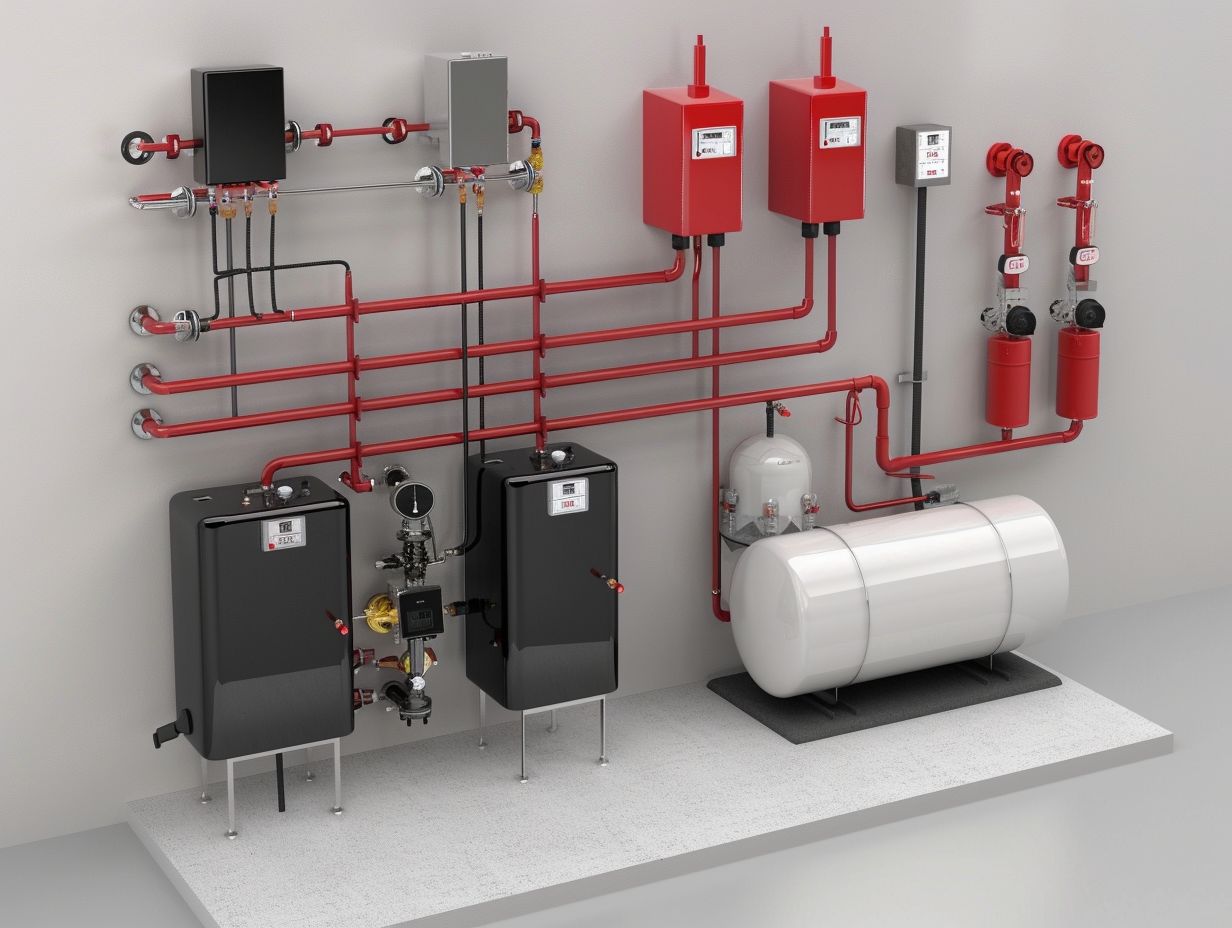
Professional installation ensures the seamless integration of dual-fuel systems, whilst maintenance tips focus on regular servicing, checking backup heating sources, and ensuring system efficiency.
During the installation process, it is crucial to consider the compatibility of the system components, proper venting, and accurate placement of thermostats for optimal performance.
Regular maintenance should include inspecting and cleaning vents and ductwork, ensuring proper airflow, and monitoring the accuracy of thermostats. Checking backup heating sources such as electric heaters or gas furnaces should be part of the routine to guarantee operational readiness.
System checks should also involve testing the ignition system, fuel supply, and exhaust systems for any potential issues. Efficiency optimisation techniques may include programmable thermostats, air filter replacements, and periodic professional inspections.
Comparing Dual Fuel Heating Systems to Other Options
When evaluating heating options, you should compare dual-fuel systems to other alternatives by assessing the pros and cons of different heating systems to determine the most suitable choice for your residential heating needs.
Pros and Cons of Different Heating Systems
When evaluating the pros and cons of various heating systems, you should consider factors such as energy savings, insulation requirements, and the overall efficiency of each system to make informed decisions based on your individual preferences and heating needs.
In terms of energy savings, newer heating systems like heat pumps and geothermal systems are known for their high efficiency levels, leading to significant cost savings in the long run. On the other hand, traditional systems like gas furnaces may offer lower upfront costs but could result in higher energy bills over time.
Insulation plays a crucial role in the effectiveness of heating systems, as poor insulation can lead to heat loss and decreased efficiency. The maintenance and repair costs should also be taken into account when comparing different heating options.
Frequently Asked Questions
What are the benefits of dual fuel heating systems?
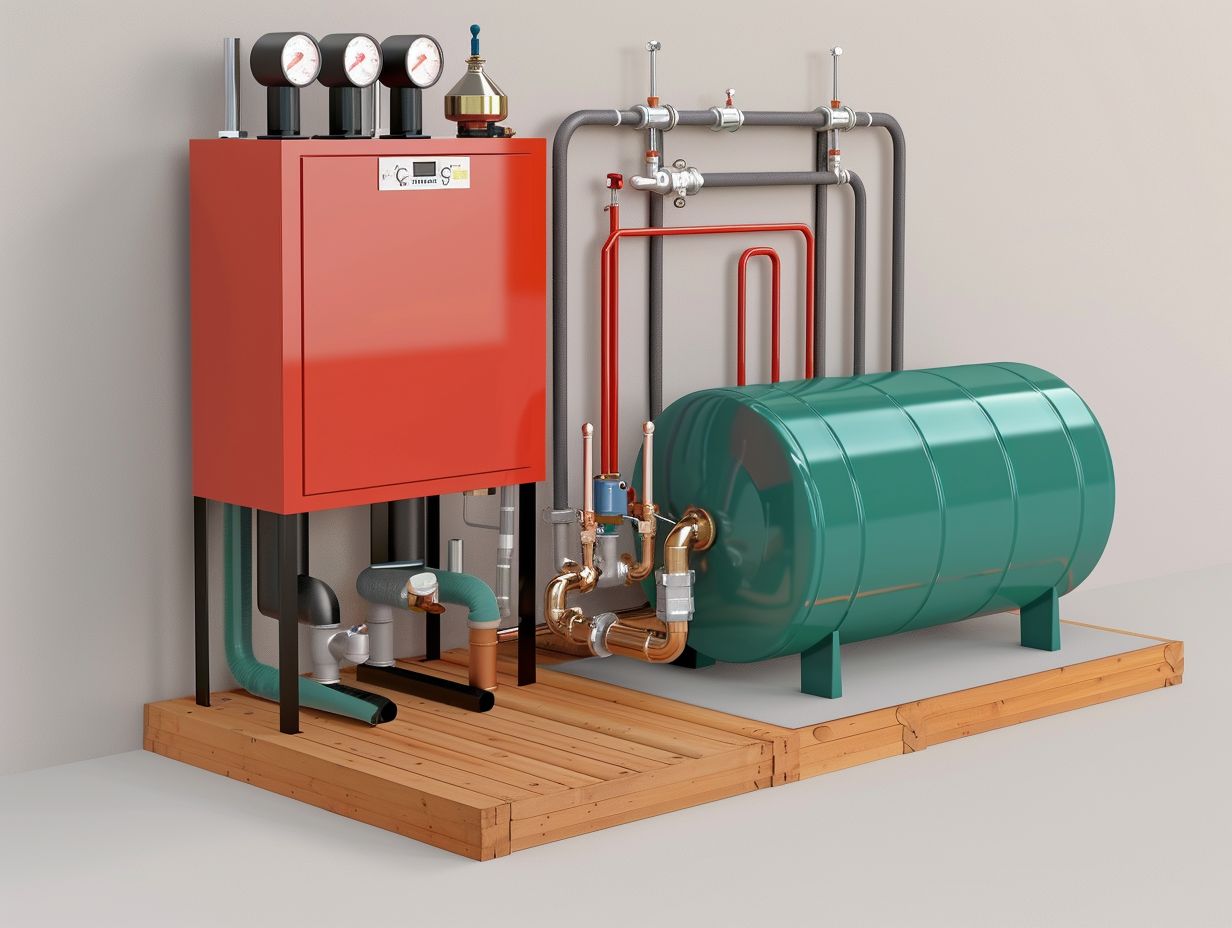
Dual fuel heating systems offer the versatility of using both electricity and a secondary fuel source, typically natural gas, to heat your home or building. This allows for increased energy efficiency and cost savings.
How do dual fuel heating systems save energy?
Dual fuel heating systems use the most efficient energy source based on the current outside temperature. When the temperature drops below a certain threshold, the system will switch to the secondary fuel source, which is typically natural gas, to provide more efficient heating. This results in lower energy consumption and cost savings for the user.
Can dual fuel heating systems be used in any climate?
Yes, dual fuel heating systems can be used in any climate. They are especially beneficial in areas with extreme temperature fluctuations, as they are able to switch to the most efficient heating source to maintain a comfortable indoor temperature.
Are dual fuel heating systems more expensive than traditional heating systems?
Dual fuel heating systems may have a higher upfront cost, as they require both an electrical and gas system to be installed. However, the long-term cost savings and energy efficiency make them a more cost-effective choice in the long run.
Do dual fuel heating systems require regular maintenance?
Like any heating system, dual fuel heating systems should be regularly maintained to ensure optimal performance and energy efficiency. This typically includes yearly maintenance checks and filter replacements.
Can I switch to a dual fuel heating system if I already have a traditional heating system?
Yes, it is possible to switch to a dual fuel heating system if you already have a traditional heating system. However, it is best to consult with a professional HVAC technician to determine if your current system is compatible and what changes may need to be made for a smooth transition to a dual fuel system.

